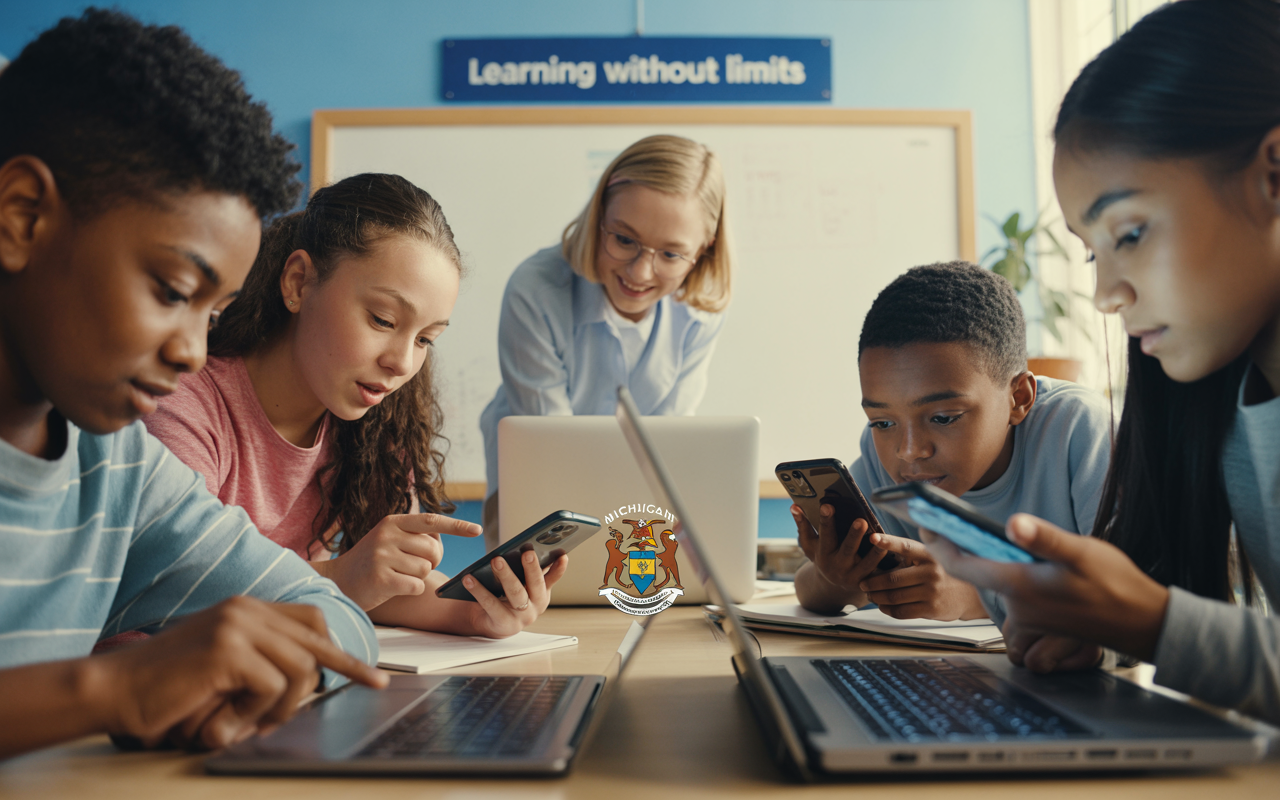The Cereal City Buzz
Archives
Michigan's Classroom Smartphone Ban Stalls Amid Legislative Deadlock
SIGN UP FOR OUR NEWSLETTER
Michigan's Classroom Smartphone Ban Stalls Amid Legislative Deadlock |
Statewide Efforts to Restrict Phone Use in Schools Face Setback |
Efforts to implement a statewide ban on smartphone use in Michigan's K-12 classrooms have hit a significant roadblock.
Despite bipartisan support and advocacy from Governor Gretchen Whitmer, the proposed legislation failed to secure the necessary votes in the House.
The bill, introduced by State Representative Mark Tisdel, aimed to restrict smartphone usage during instructional hours across all grade levels.
However, it fell short by three votes, with a final tally of 53 in favor and 45 against, missing the required 56 votes for passage.
Notably, the opposition included members from both parties, highlighting the complexities of the issue.
In response to the bill's failure, House Speaker Matt Hall expressed disappointment, stating that without legislative action, no statewide smartphone restrictions will be in place for the upcoming school year.
He emphasized the potential impact on students' learning experiences, suggesting that the absence of such a policy could hinder academic focus and performance.
Despite the legislative impasse, some Michigan school districts are proactively addressing the issue.
For instance, the Anchor Bay School District has announced an "Away-for-the-Day" policy set to commence this fall.
This initiative requires students to turn off and store devices like smartphones, smartwatches, and personal laptops in their lockers during school hours.
The district aims to foster a more focused and interactive educational environment, though some parents have raised concerns about safety and communication.
Similarly, the Lansing School District has implemented a policy where high school teachers collect student phones at the beginning of class, allowing usage only during breaks.
Administrators have reported increased student engagement and improved grades as a result of this approach.
Public opinion in Michigan appears to favor such restrictions.
A survey conducted in October 2024 revealed that nearly 58% of voters support requiring students to lock up their cellphones during class time.
Support was particularly strong among older demographics and Republican voters.
In contrast, younger voters aged 18-29 were more likely to oppose the measure.
While the statewide legislative effort has stalled, the debate over smartphone use in classrooms continues.
Proponents argue that limiting access can reduce distractions and improve mental health, while opponents raise concerns about safety and the practicality of enforcement.
As the new school year approaches, individual districts may continue to develop and implement their own policies to address this ongoing issue. |

